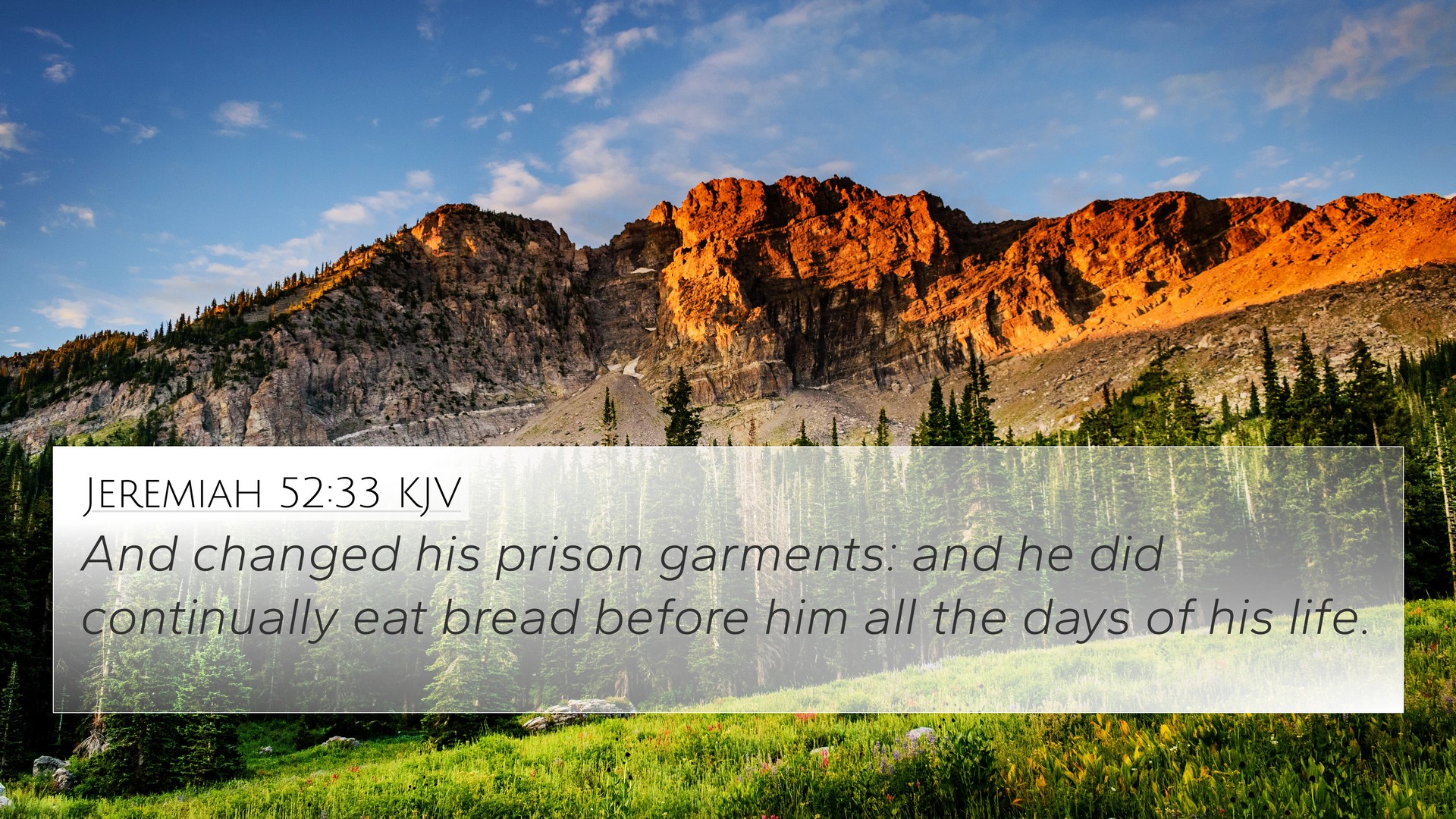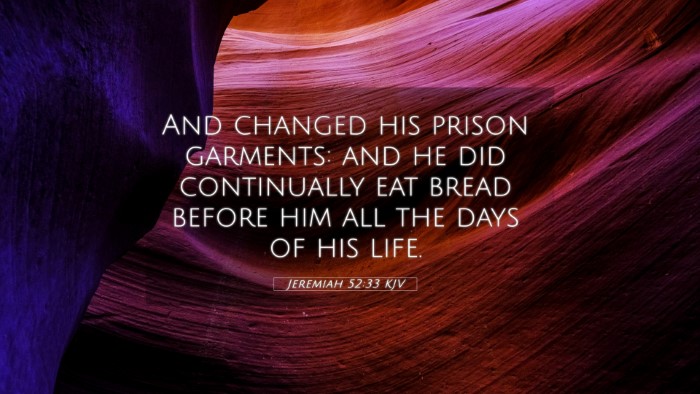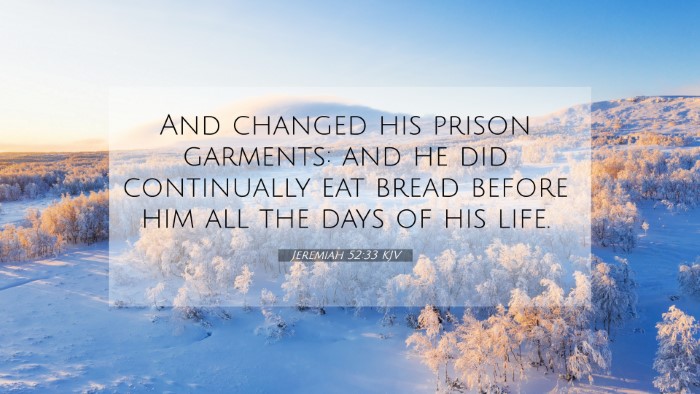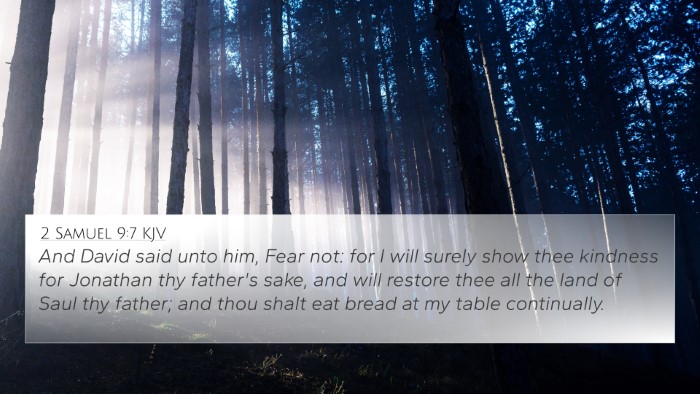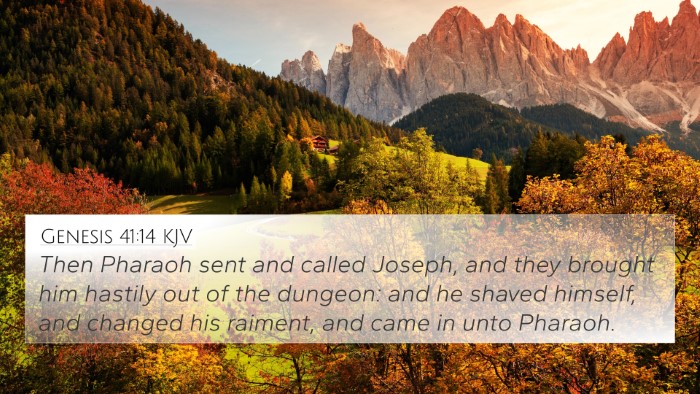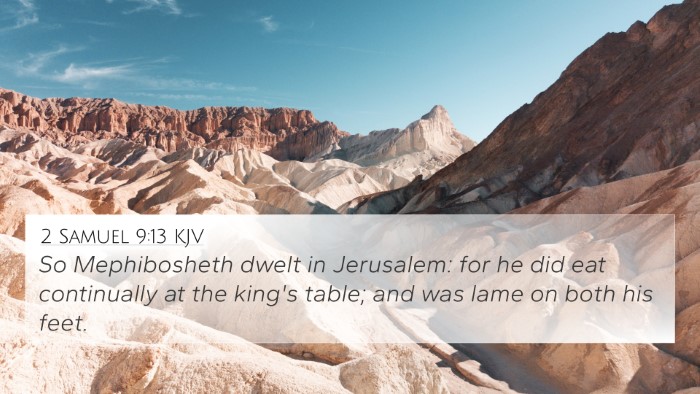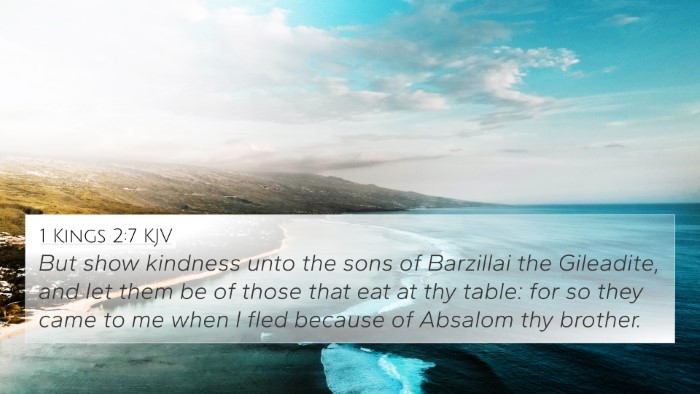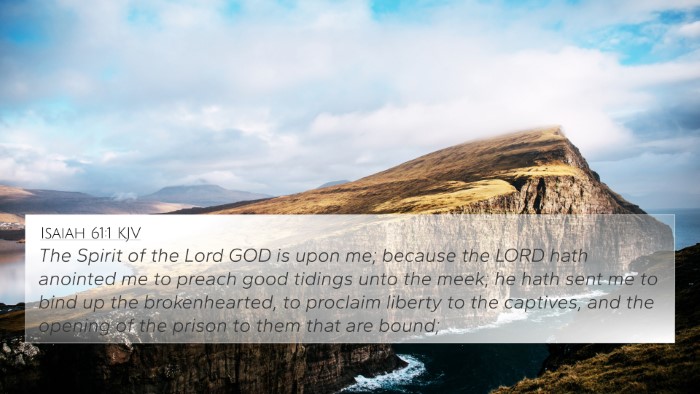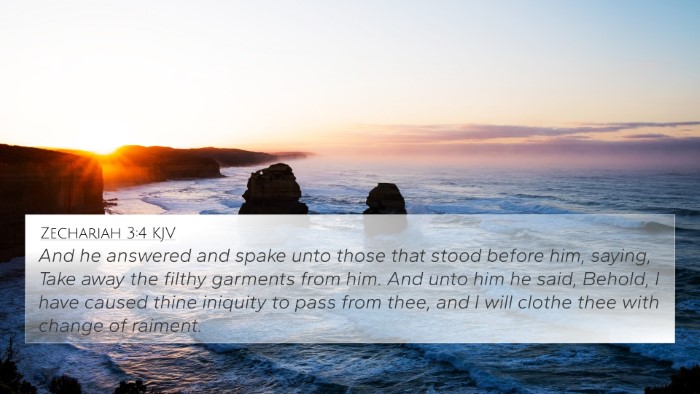Understanding Jeremiah 52:33
Verse Reference: Jeremiah 52:33 - "And changed his prison garments: and he did continually eat bread before him all the days of his life."
Summary of Meaning
This verse concludes the poignant story of Jehoiachin, the king of Judah, who was exiled in Babylon after the city's fall. The verse highlights a significant transformation in Jehoiachin's circumstances from a state of imprisonment to one of favor.
Commentary Insights
- Matthew Henry: Henry notes the mercy shown to Jehoiachin, illustrating God’s role in restoring and uplifting even those who are captives. He emphasizes the change in garments symbolizing a transformation of status and dignity.
- Albert Barnes: Barnes points out that the switching of garments indicates rehabilitation and acceptance, as Jehoiachin was treated with honor in Babylon, signifying a reversal in his fortunes and furthering our understanding of divine grace.
- Adam Clarke: Clarke elaborates on the spiritual implications, suggesting that this act of feeding Jehoiachin as an honored guest reflects God’s mercy towards His people, promising that the fortunes of the faithful may change despite dire circumstances.
Cross-References
This verse connects with several other scriptures that reveal themes of redemption, restoration, and the sovereignty of God:
- 2 Kings 25:27-30: These verses recount the same event, recounting Jehoiachin’s release from prison and the kindness shown to him.
- Ezekiel 21:25-27: This passage discusses the fall of the royal line, parallel to Jehoiachin’s story.
- Psalm 30:11: Expresses the transformation from mourning to joy, reflecting Jehoiachin’s shift in circumstances.
- Isaiah 61:1: Relates to proclaiming liberty to the captives, similar to the liberation of Jehoiachin.
- Jeremiah 29:10-14: God's assurance of restoration to His people mirrors Jehoiachin's experience.
- 2 Chronicles 36:22-23: Discusses the same decree of liberation as noted in Jeremiah 52:33.
- Luke 4:18: Jesus references Isaiah 61, which includes themes of release and restoration that resonate with Jehoiachin’s narrative.
- Romans 8:28: Alludes to works for good in the lives of those who love God, similar to the fate of Jehoiachin.
- Revelation 21:4: Offers a view of a future where God wipes away tears, portraying transformation and renewal.
- Philippians 4:19: Highlights God's provision, suggesting that He provides for the needs of His people, much like He did for Jehoiachin post-exile.
Connections Between Bible Verses
This verse, while focusing on the individual experience of Jehoiachin, opens the door to broader themes of divine restoration throughout Scripture. Analyzing these connections can provide deeper insights into how God interacts with humanity, particularly in moments of distress.
Exploring Cross-Referencing
To understand the significance of Jeremiah 52:33, one can explore tools for Bible cross-referencing. Utilizing a Bible concordance, readers can identify links between various scripture passages, helping to weave a deeper tapestry of biblical theology.
Thematic Bible Verse Connections
The story of Jehoiachin can be seen as a microcosm of the larger narrative of Israel's disobedience, punishment, and eventual restoration—a recurring theme across both the Old and New Testaments that invites us to reflect on hope amid despair.
Cross-Referencing Bible Study Methods
When conducting a cross-reference Bible study, it's beneficial to keep in mind the common threads running through the biblical text. Familiarity with a Bible cross-reference guide informs readers on how to navigate these thematic connections effectively, enhancing their understanding of biblical teachings.
Conclusion
In conclusion, Jeremiah 52:33 serves as a powerful reminder of God’s ability to transform lives and restore hope. By employing cross-referencing tools and studying related passages, believers can uncover profound truths about God's faithfulness and mercy.
